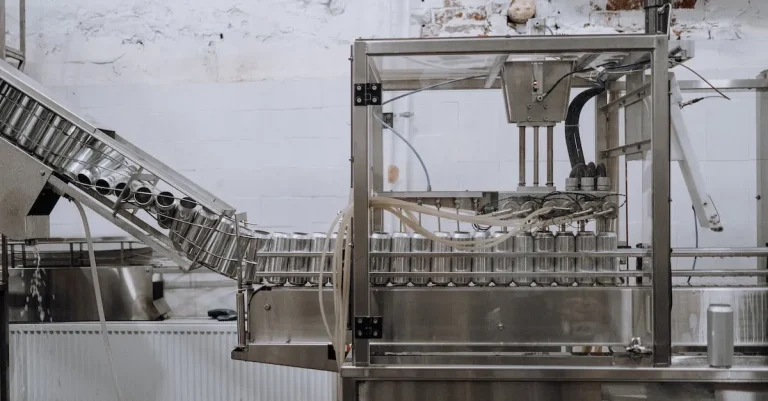How Much Does Illinois Pay Foster Parents?
Raising children is expensive, but foster parents in Illinois receive financial assistance and reimbursements to help cover the costs of caring for children in need.
If you’re short on time, here’s a quick answer to your question: The basic foster care payment in Illinois ranges from around $500 to $800 per month per child depending on the child’s age. There are also supplemental payments and reimbursements available.
In this article, we’ll dive into the details of the foster care payment system in Illinois so you understand exactly how much support foster parents receive.
Basic Monthly Foster Care Payments in Illinois
Foster care is a vital program that provides temporary homes for children who are unable to live with their biological families. Foster parents play a crucial role in providing a safe and nurturing environment for these children.
In Illinois, foster parents receive monthly payments to help cover the costs associated with caring for a child in their home. These payments vary based on several factors, including the age of the child and other considerations.
Payment rates per child’s age
The amount of monthly foster care payments in Illinois depends on the age of the child. As of 2021, the basic rates are as follows:
| Age Group | Monthly Payment |
|---|---|
| 1-8 years old | $500 – $600 |
| 9-14 years old | $650 – $750 |
| 15-17 years old | $800 |
It’s important to note that these rates are subject to change, and additional support may be available for children with special needs or challenging behaviors.
Considerations that impact payment amounts
While the age of the child is a significant factor in determining foster care payments, there are other considerations that can impact the amount a foster parent receives each month. These considerations include:
- Special needs: Children with special needs may require additional care and support, and foster parents may be eligible for higher payments to help meet these needs.
- Behavioral challenges: Some children may exhibit challenging behaviors that require extra attention and resources. Foster parents who care for children with behavioral challenges may receive increased payments to assist with these additional demands.
- Training and experience: Foster parents who have received specialized training or have extensive experience in caring for children may be eligible for higher payments.
It’s important to consult with the Illinois Department of Children and Family Services or a licensed foster care agency for the most up-to-date information on foster care payment rates and eligibility criteria.
For more information about foster care payments in Illinois, you can visit the official Illinois Department of Children and Family Services website.
Reimbursements for Foster Children’s Expenses
When it comes to foster care, Illinois recognizes the importance of providing financial support to foster parents who selflessly open their homes and hearts to children in need. One key aspect of this support is the reimbursement provided to cover the expenses associated with caring for foster children.
Let’s take a closer look at the different types of reimbursements available.
Clothing Allowance
Illinois provides a clothing allowance to foster parents to ensure that foster children have appropriate clothing that fits well and meets their needs. This allowance helps cover the cost of purchasing new clothes or replacing worn-out items.
Foster parents are encouraged to consult with the child’s caseworker to determine the specific amount allocated for clothing expenses.
School and Activity Expenses
Foster parents play a crucial role in supporting a child’s education and extracurricular activities.
Illinois recognizes this and offers reimbursements to cover school-related expenses such as school supplies, uniforms, and fees for extracurricular activities like sports, music lessons, or summer camps.
These reimbursements help ensure that foster children have the same opportunities as their peers.
Transportation Costs
Transportation can be a significant expense for foster parents, especially when it comes to ensuring that foster children can attend medical appointments, therapy sessions, and visitations with their biological families.
Illinois provides reimbursements to help foster parents cover the costs associated with transporting foster children to and from these important appointments.
Medical and Dental Costs
Foster children often require regular medical and dental care to ensure their overall well-being. Illinois understands the financial strain that these expenses can place on foster parents and offers reimbursements to help cover medical and dental costs.
Foster parents are encouraged to maintain detailed records of these expenses to ensure they receive the appropriate reimbursement.
According to the Illinois Department of Children and Family Services (DCFS), the exact amount of reimbursement varies depending on the individual needs of the foster child and the resources available.
Foster parents should consult with their caseworker or visit the DCFS website for more information regarding the specific reimbursement rates and guidelines.
It’s important to note that the primary goal of these reimbursements is to ensure that foster children receive the care and support they deserve. They are not intended to be a source of income for foster parents but rather a means to alleviate some of the financial burden associated with foster care.
Supplemental and Special Payments
When it comes to foster care, Illinois recognizes the importance of providing adequate financial support to foster parents.
In addition to basic maintenance payments, the state offers supplemental and special payments to help meet the unique needs of foster children. These additional payments aim to compensate foster parents for the extra care and attention required for certain circumstances.
Difficulty of care payments
Foster parents in Illinois may be eligible for difficulty of care payments. These payments are designed to provide extra financial assistance to foster parents who are caring for children with special needs or challenging behaviors.
The amount of these payments varies depending on the level of care required by the child and the specific challenges they may be facing.
These payments can help cover the cost of specialized therapies, medications, or additional support services that may be necessary to address the child’s unique needs.
Sibling placement payments
Illinois also recognizes the importance of keeping siblings together whenever possible. Foster parents who are caring for siblings in the same household may be eligible for sibling placement payments.
These payments are meant to cover the additional expenses associated with caring for multiple children, such as increased food, clothing, and transportation costs.
By providing financial support for foster parents who are willing to take in sibling groups, Illinois aims to promote sibling connections and maintain family bonds.
Respite care payments
Respite care payments are another type of supplemental payment available to foster parents in Illinois. These payments are intended to compensate foster parents for providing short-term breaks or respite care to other foster families.
Taking care of foster children can be demanding, both emotionally and physically, and respite care offers foster parents the opportunity to recharge and take care of their own well-being.
By offering financial support for respite care, Illinois encourages foster parents to continue providing a stable and nurturing environment for children in need.
For more information about the specific amounts and eligibility criteria for these supplemental and special payments, foster parents in Illinois can visit the Illinois Department of Human Services website or contact their local foster care agency.
Other Benefits for Foster Parents in Illinois
Foster parents in Illinois not only receive financial support for taking care of children in their homes, but they are also eligible for various other benefits that aim to support them in their role.
These additional benefits can make a significant difference in the lives of foster parents and the children they care for.
Free annual passes to state parks
One of the perks of being a foster parent in Illinois is the provision of free annual passes to state parks. This benefit allows foster families to enjoy outdoor activities and create lasting memories with the children in their care.
By providing access to state parks, Illinois recognizes the importance of nature and recreation in the well-being of foster children.
Foster parent liability insurance
Illinois offers foster parents liability insurance coverage. This insurance protects foster parents from potential legal liabilities that may arise while caring for foster children.
It provides peace of mind and reassurance to foster parents, allowing them to focus on providing a safe and nurturing environment for the children in their care.
Free car seats and cribs
Ensuring the safety and well-being of foster children is a top priority in Illinois. As part of this commitment, the state provides free car seats and cribs to foster parents.
This not only helps foster parents meet the necessary safety requirements but also alleviates the financial burden of purchasing these essential items.
Tax benefits
Foster parents in Illinois are eligible for certain tax benefits. These benefits may include deductions for eligible expenses related to fostering, such as clothing, food, and medical care.
Foster parents should consult with a tax professional or refer to the Internal Revenue Service (IRS) guidelines for specific details on tax benefits available to them.
Conclusion
Foster parents play a vital role in providing stable and nurturing homes for children in need.
While foster parenting requires dedication and sacrifice, the state of Illinois offers various forms of assistance to support foster families financially.
Understanding the full range of regular payments, reimbursements, and benefits available can help you determine if becoming a foster parent may be right for your family.










